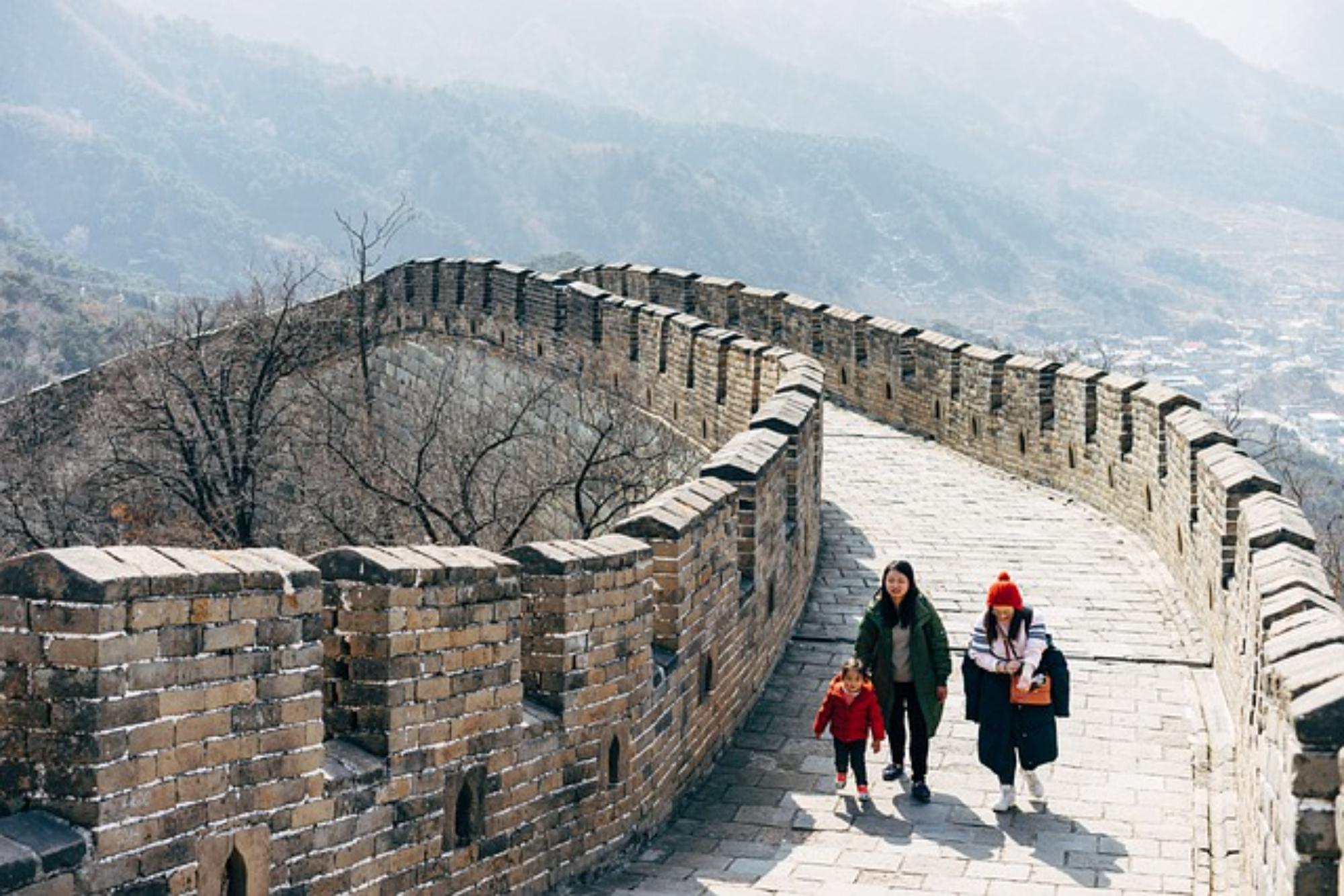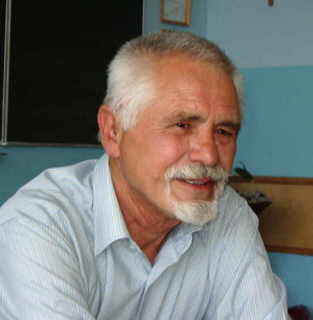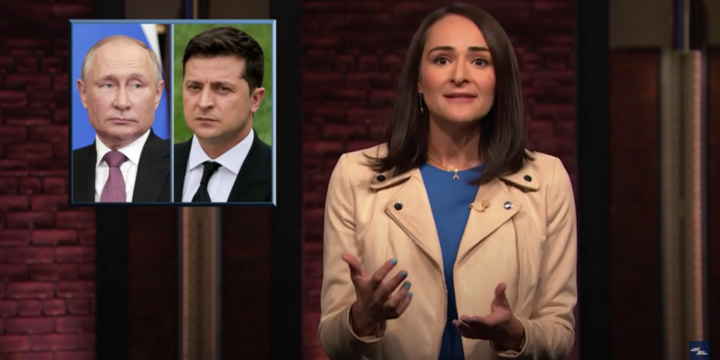 Najlepszy sojusznik Putina
Najlepszy sojusznik Putina
Andrzej Koraszewski

.
Ile Władimir Putin powiedział prezydentowi Xi, kiedy spotkali się w Pekinie 4 lutego 2022 r.? Ogłosili wtedy „świt nowej ery” oraz program „bezgranicznej współpracy”. Spotkali się na otwarciu Igrzysk, ale prawdopodobnie rozmawiali również o innych igrzyskach. Za oceanem zasadnie spekulowano, że Putin nie zaatakuje Ukrainy przed końcem zimowej olimpiady. Faktycznie odczekał, istotniejsze jest jednak to, że obecnie Pekin odmawia nazwania rosyjskiej agresji inwazją, a chińscy analitycy zauważają, że zachodnie sankcje mogą być nie tylko osłabione przez chińsko-rosyjską współpracę gospodarczą, ale mogą tę współpracę bardzo wzmocnić. Już po rozpoczęciu inwazji na Ukrainę prezydent Xi powiedział, że Chiny popierają wysiłki Rosji na rzecz rozwiązania ukraińskiego kryzysu.
Zajęcie Krymu poprzedziło przejęcie pełnej kontroli Pekinu nad Hongkongiem, ubiegły rok był rokiem nieustającej demonstracji siły Chin wobec Tajwanu i otwartych zapowiedzi inwazji. Zaledwie w tle widzieliśmy rosyjskie sadowienie się w Syrii i chińskie zbliżenie zarówno gospodarcze, jak i militarne z Teheranem.
Czy oddanie Afganistanu talibom przyspieszyło proces konsolidacji sojuszu rosyjsko-chińskiego? Przez dziesięciolecia parasol atomowy chronił Europę przed wojną. Czy dziś ten sam parasol atomowy chronić będzie wojnę państw totalitarnych przeciw demokracjom? Chwilowo Rosja postanowiła połknąć Ukrainę. Dla Europy Zachodniej będzie to z pewnością oznaczało głęboki kryzys energetyczny i (prawdopodobnie) radykalną zmianę całej polityki energetycznej. Warto odnotować, że od pewnego czasu incydenty w przestrzeni powietrznej Tajwanu przestały się nasilać, a nawet radykalnie osłabły. Wiązanie tego wyłącznie z Zimowymi Igrzyskami Olimpijskimi byłoby naiwnością. Trudno przewidzieć, czy Chiny będą czekać na efekty rosyjskiej agresji, czy niebawem będziemy świadkami militarnych działań Pekinu? (W pierwszym dniu inwazji na Ukrainę 9 samolotów chińskich wtargnęło w tajwańską przestrzeń powietrzną). Podejrzewam, że raczej wybiorą odczekanie. Raczej będą się przyglądać, jak Europa radzi sobie z kryzysem spowodowanym załamaniem się handlu paliwami z Rosją i jak to wszystko wpłynie na amerykańską politykę. Czy w międzyczasie nasilać się będą konflikty na Bliskim Wschodzie? Izraelska armia z niesłychaną uwagą obserwuje rosyjską strategię działań na Ukrainie. Ich analitycy zasadnie podejrzewają, że robią to również irańscy generałowie. To wojna nowej generacji, z użyciem pocisków precyzyjnego rażenia i dronów. Na Bliskim Wschodzie jemeńscy Huti już pierwszego dnia opowiedzieli się całym sercem po stronie Rosji. (Trudno o wątpliwości, że jest to głos Iranu).
Czy wynik tej wojny jest już przesądzony? Czy już pora zastanawiać się, co będzie dalej, kiedy nic nie jest jeszcze pewne? Chwilowo wydaje się, że Rosja zatrzyma się na połknięciu Ukrainy, ustanowieniu tam marionetkowego rządu, a faktycznie okupacji tego kraju. Jeśli tak będzie, to dla nas najważniejszym pytaniem na krótką metę jest, jak potężny będzie kryzys energetyczny w Europie Zachodniej i jaka będzie strategia powrotu do energetycznego bezpieczeństwa.
Brytyjski polityk i dziennikarz, Matt Ridley przypomniał wczoraj swój artykuł z 2019 roku, w którym pisał o m.in. rosyjskich zabiegach, żeby zniechęcić zachodnie społeczeństwa do szczelinowania. Większość tego artykułu poświęcona była długiej historii walki dobrze okopanych dziedzin gospodarki z innowacjami, które mogą im zagrażać. Kupuje się ekspertów, pakuje się duże pieniądze w przekonywanie społeczeństwa, że ta czy inna innowacja jest nic nie warta, a w dodatku straszliwie szkodliwa dla zdrowia.
W 2011 roku – pisze w tym artykule Matt Ridley – spadająca produkcja gazu w Ameryce strzeliła do góry, a wkrótce za nią podążyła produkcja ropy naftowej. USA wyprzedziły obecnie Rosję jako największego producenta gazu i Arabię Saudyjską jako największego producenta ropy naftowej. Tani gaz spowodował, że wiele firm petrochemicznych powróciło z Europy i Zatoki Perskiej, by prowadzić produkcję w Ameryce. Terminale importu gazu przebudowano na terminale eksportu gazu. Sam basen permski w Teksasie produkuje teraz tyle ropy naftowej co całe USA produkowały w 2008 roku i więcej niż którykolwiek kraj OPEC z wyjątkiem Iranu i Arabii Saudyjskiej. To właśnie – a nie energia wiatrowa i słoneczna, które nadal dostarczają zaledwie 2 procent energii świata – jest wielką wiadomością o energii w minionym dziesięcioleciu.
Dla Rosji bo była bardzo zła nowina, nic dziwnego, że inwestycje w zachodnich „środowiskowców” uznali za szczególnie ważne:
Rosjanie za kulisami także lobbowali przeciwko gazowi łupkowemu, zaniepokojeni utratą kontroli nad światową podażą gazu. W odróżnieniu od teorii spiskowych o Rosjanach mieszających w zachodniej polityce to jest wyraźnie udokumentowane. Szef NATO, Anders Fogh Rasmussen, powiedział, że Rosjanie, jako część wyrafinowanej operacji dezinformacji, „aktywnie działali razem z tak zwanymi organizacjami pozarządowymi – środowiskowymi organizacjami pracującymi przeciwko gazowi łupkowemu – by zachować zależność Europy od importowanego rosyjskiego gazu”.
Centre for European Studies odkrył, że rząd rosyjski zainwestował 95 milionów dolarów w NGO, które prowadziły kampanie przeciwko gazowi łupkowemu. Telewizja Russia Today pokazywała niekończące się wiadomości o negatywnych stronach szczelinowania, włącznie z twierdzeniem, że „ci, którzy szczelinują, są moralnymi odpowiednikami pedofilów”. Dyrektor wywiadu USA powiedział, że „RT nadaje programy przeciwko szczelinowaniu… odzwierciedlające niepokój rosyjskiego rządu w sprawie wpływu szczelinowania i amerykańskiej produkcji gazu ziemnego na globalny rynek energetyczny i potencjalne wyzwanie wobec zysków Gazpromu”. Prorosyjscy politycy wygłaszali mowy w parlamencie przeciwko szczelinowaniu.
O kryzysie energetycznym słyszymy dużo od jesieni ubiegłego roku. W Europie uderzył szczególnie silnie w Wielką Brytanię i Niemcy. Eksperci wyjaśniali go różnie, fakty jednak były widoczne dla wszystkich. Astronomiczny wzrost cen gazu ziemnego, szybki wzrost cen ropy naftowej i węgla. Być może węgiel jest szczególnie interesujący, ponieważ od lat Europa zamykała swoje kopalnie, jednak spadek uzależnienia od węgla był znacznie wolniejszy niż przewidywano, co oznaczało wzrost importu i to głównie z Rosji. W styczniu gwałtowne zakłócenia dostaw węgla z Rosji wywołały dodatkową panikę i sygnały, że Unia Europejska raczej nie będzie się angażować w sankcje, bo nie może sobie na to pozwolić. (To mógł być dodatkowy sygnał dla Putina, że wszystkie mocne karty są w jego ręku).
Kryzys energetyczny poważnie dotknął również Chiny, perspektywa przekierowania rosyjskich zasobów mogła być kusząca, więc nawet jeśli nie zachęcali do inwazji, to z pewnością nie zniechęcali.
Wiemy zbyt mało, jedno wydaje się jednak pewne, że awanturnictwo rosyjskiego prezydenta, nie tylko nie wywołuje w Pekinie irytacji, ale najprawdopodobniej jest witane z zadowoleniem, ponieważ niezależnie jak się sytuacja rozwinie, przyniesie Chinom zyski, w postaci osłabienia Zachodu, lepszego dostępu do rynku paliw i (najprawdopodobniej) przygotuje grunt do inwazji na Tajwan.
Rosja może drogo za tę awanturę zapłacić. Putin może się w swoich rachubach przeliczyć. Chińczycy, tak czy inaczej, na tym wygrają nawet nie kiwnąwszy palcem. Wiele wskazuje na to, że Zachód stanie w obliczu wyzwania co najmniej tak wielkiego, jak kryzys 1973 roku. Powrót do sytuacji, jaka była jeszcze kilka dni temu nie wydaje się już możliwy.
 Andrzej Koraszewski – Publicysta i pisarz ekonomiczno-społeczny. Ur. 26 marca 1940 w Szymbarku, były dziennikarz BBC, wiceszef polskiej sekcji BBC, i publicysta paryskiej „Kultury”.
Andrzej Koraszewski – Publicysta i pisarz ekonomiczno-społeczny. Ur. 26 marca 1940 w Szymbarku, były dziennikarz BBC, wiceszef polskiej sekcji BBC, i publicysta paryskiej „Kultury”.
Zawartość publikowanych artykułów i materiałów nie reprezentuje poglądów ani opinii Reunion’68,
ani też webmastera Blogu Reunion’68, chyba ze jest to wyraźnie zaznaczone.
Twoje uwagi, linki, własne artykuły lub wiadomości prześlij na adres:
webmaster@reunion68.com




